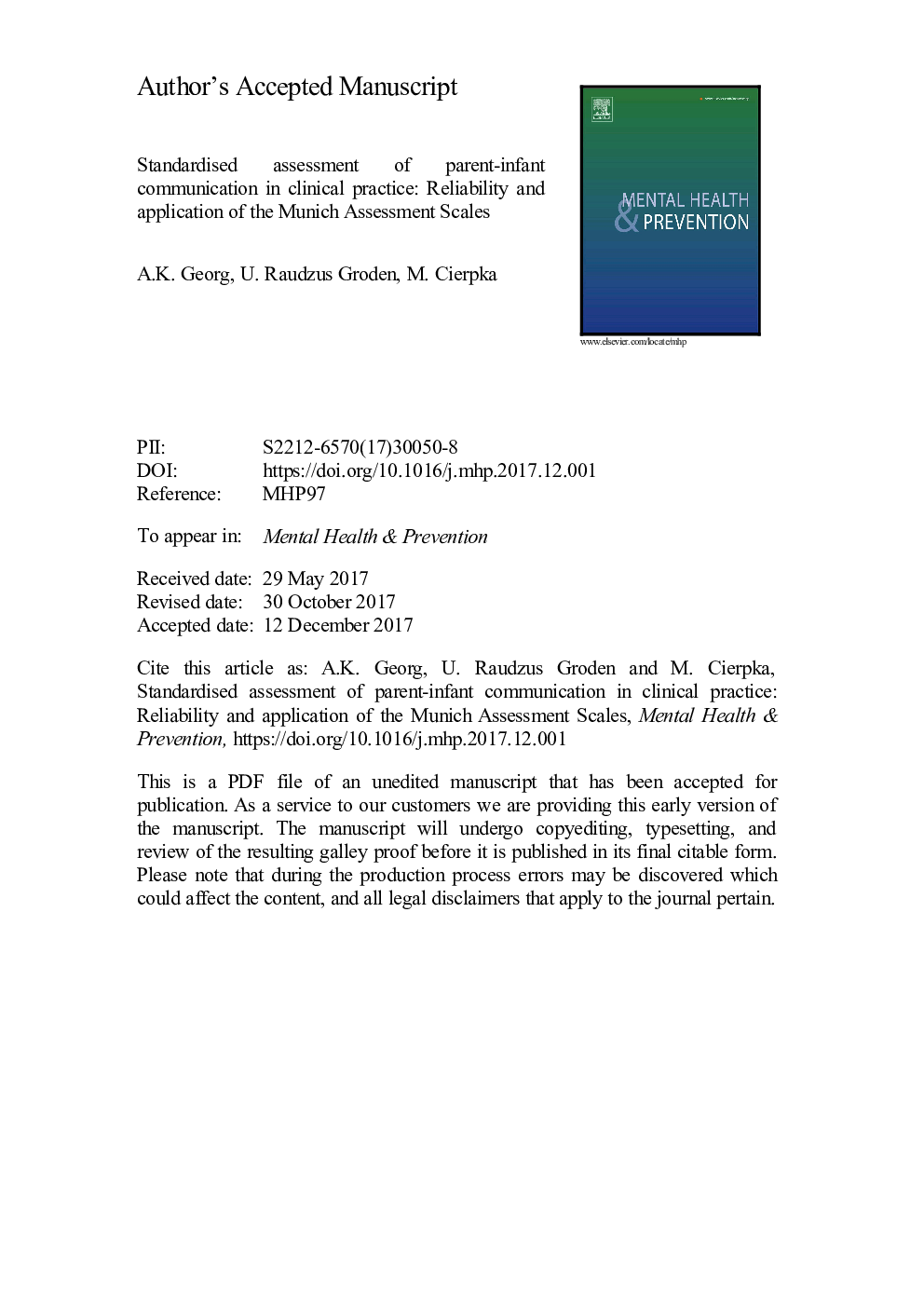| Article ID | Journal | Published Year | Pages | File Type |
|---|---|---|---|---|
| 6802747 | Mental Health & Prevention | 2018 | 24 Pages |
Abstract
The goal of the present study is to investigate the reliability of the modified Munich Assessment Scales for parent-infant communication (Münchner Klinische Kommunikationsskalen). The macro-analytical instrument assesses parent-infant communication in early infancy (age one to six months) and is mainly geared towards clinical application in diagnostics, counselling, and therapy. The construction of the scales is based on micro-analytical research of preverbal communication and clinical experience with regulatory disorders in early infancy. Three-minute videotapes of face-to-face interactions under standardised conditions are used for the assessment. The four scales offer detailed behavioural descriptions of both parent and infant, and the attunement of parental behaviour to the infant's state of readiness to interact. For the purposes of the current study, 25 parent-infant dyads were recruited from paediatric practices, parent-child groups, the mother-child unit of a psychiatric hospital, and an outpatient parent-infant counselling service. The control and clinical groups consist of 13 and 12 dyads respectively. Reliability analyses reveal high percentages of agreement ranging from 75% to 85%. The scales correlate among each other in theoretically predicted patterns. We conclude that the MKK is a reliable and suitable instrument for the assessment of parent-infant interactions. In the discussion, we recommend further adjustments of the instrument, highlight its diagnostic and therapeutic applicability, and encourage future research.
Related Topics
Health Sciences
Medicine and Dentistry
Medicine and Dentistry (General)
Authors
A.K. Georg, U. Raudzus Groden, M. Cierpka,
